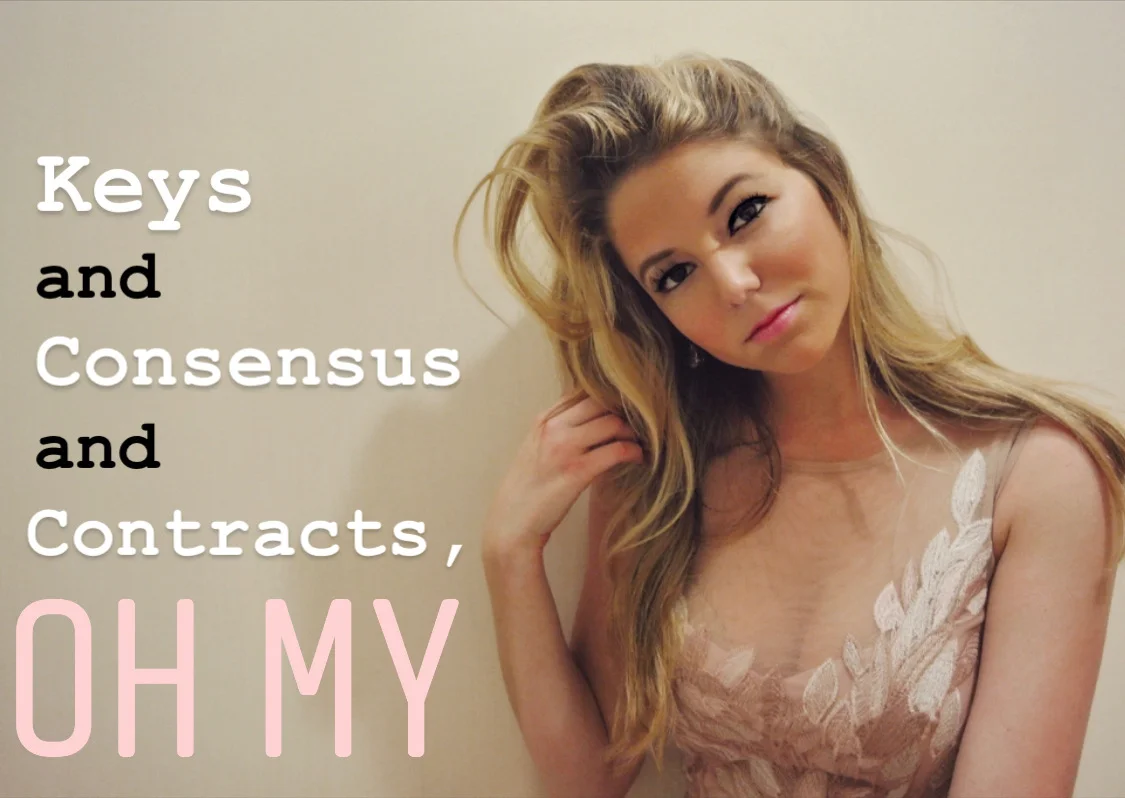Smart Contracts Breakdown Guide
When talking about blockchain, there are a few buzzwords that seem to peak interest. One of those? Smart contracts.
At first glance, smart contracts sound like lawyer talk, and in a way, they are. You know how everyone is always talking about technology replacing people? Well, some argue smart contracts are one of those technologies. So, lawyers, law abiders (or breakers), technology enthusiasts, and basically everyone else…. Listen up! Smart contracts are something you’re going to want to learn and learn well.
For starters, what is a smart contract?
Well, essentially smart contracts are self executing contracts. Pretty much a computer protocol with the terms of the agreement between two parties (a buyer & seller, for example) are directly written into lines of code and, therefore, can run automatically without anyone having to do anything to make it happen. #magic
The classic example is a car. Pretend you are leasing your dream car (hot pink Bentley, duh). Every month you have to pay your lease payments. One month, you accidentally forget to pay. Whoops. Since this is a smart contract, the contract is automatically performed -- without initiative from a human. So, when you missed your lease payment, the smart contract is automatically set into motion. In this case? Missed lease payment means your dream car is automatically locked and the control is returned to the lender. Goodbye sweet hot pink Bentley.
Why are smart contracts useful?
Like most things blockchain, one of the goals is to eliminate human error. Since smart contracts are executed on their own, it doesn’t even involve a human. How can you have a human error without any humans involved? You can’t! That solves that problem.
Aside from human error, smart contracts increase the speed of completing these contracts. Without smart contracts, if you missed your lease payment, it would have to go through so much paperwork, processing, and people in order to determine what happens next. With a smart contract, your car would automatically be locked in minutes of you forgetting to pay. Minimizing time means minimizing costs. Smart Contracts = Smart Savers!
What do smart contracts give you?
Smart contracts give us many awesome things. First off, we get to eliminate the third party facilitator. We like that because that means no outside fees for the facilitator (once again, saving us all $$$). It also means complete control between the two parties and no opinions from the “peanut gallery”.
No surprise here, but smart contracts also give us trust and safety. Since everything is encrypted and stored on a secure, decentralized ledger, those documents aren’t going to be lost or stolen. Plus, without a third party, you don’t have to worry about finding someone else you can trust. It’s an unbiased system!
Savings, security, safety, efficiency… smart contracts really do seem like all that and then some.
So, do smart contracts = blockchain?
Now, here’s the thing. Smart contracts are not new. In fact, the term was coined back in 1990s by a cryptographer and programmer named Nick Szabo. That makes smart contracts older than blockchain!
Since smart contracts existed before blockchain, there is an argument that blockchain isn’t really necessary for smart contracts and therefore, the “the best part of blockchain” really has nothing to do with blockchain at all. However, many would argue that because of blockchain, smart contracts are actually a reality. Regardless, the bottom line is that smart contracts do not equal blockchain.
Are smart contracts going to rid the world of lawyers?
But wait… I love Elle Woods. I don’t want to see her go!
If you know Elle Woods, however, you know she’d be on top of smart contracts from the get-go and that’s what we all need to do. The fact of the matter is, smart contracts very well could change the work of the legal field. Does this mean it’s going to absolutely replace lawyers? No. Should lawyers understand the impacts of this technology? Yes.
Like all technologies, times are changing and they can present threats, but also opportunities. Yes, maybe we won’t have as many real-time lawyers drafting contracts and digging through depositions, but we very well will have lawyers programming contracts and creating search algorithms. In fact, a lot of lawyers already are doing this. Lawyers will still work with clients to guide relationships -- technology cannot replace human interaction. It just can’t!
A smart contract is still a contract and they need to be drafted… or coded. Someone still has to take the “deal” and put it into legally binding principles. This is part of what business lawyers are trained to do.
Plus, contracts are pretty much always filled with some sort of subjective concepts. These especially carry over into the offline world and therefore, we will probably still need some trained humans to help sort through the messes.
All in all, lawyers aren’t going anywhere, maybe just changing their roles. Legally Blonde 3 is set to release in 2020… could Elle Woods be getting her hands on some smart contracts? I hope so!






